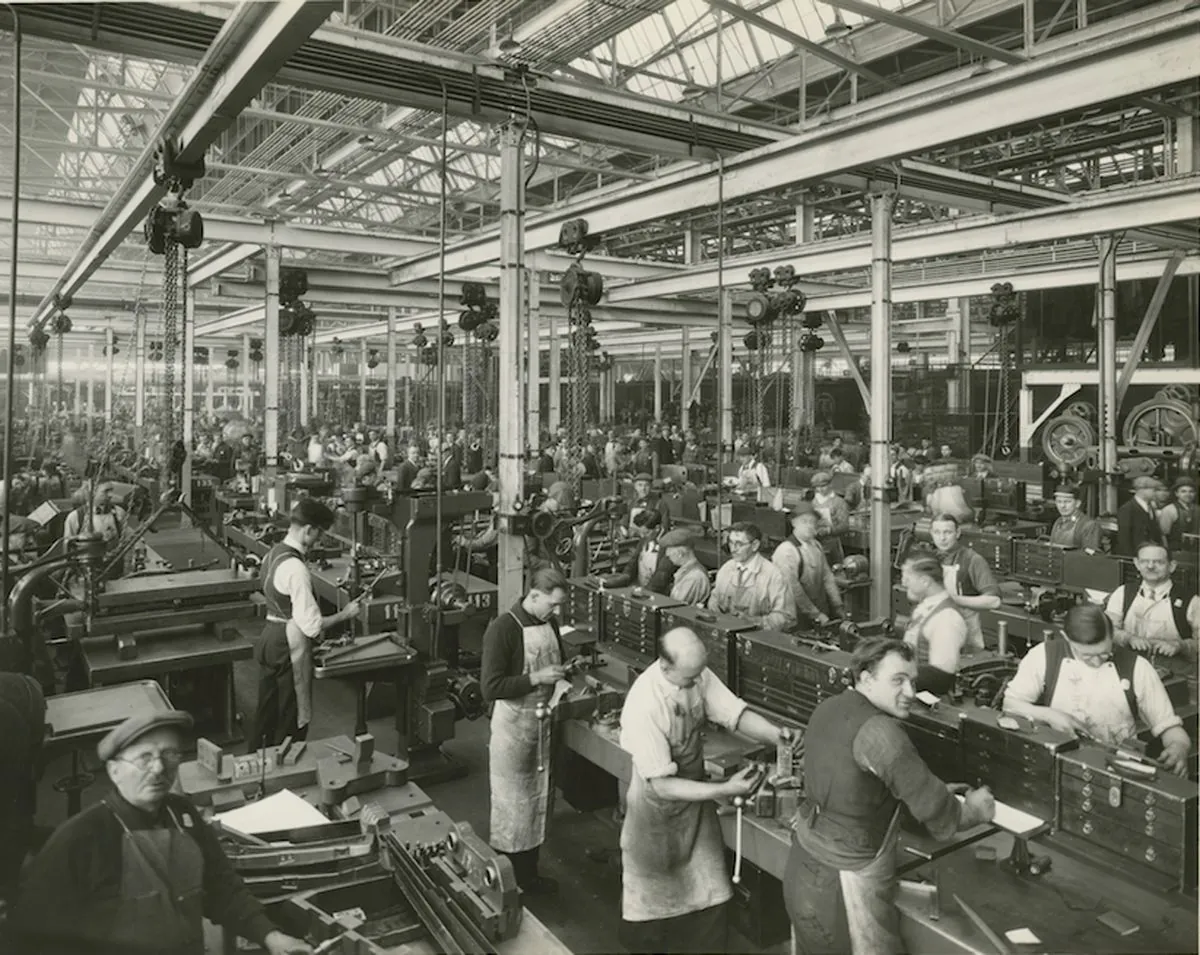Michigan Auto Plant: Battleground for 2024 Presidential Race
Ford's Michigan Assembly plant emerges as a key political arena for the 2024 election. Workers are divided between Trump and Harris, reflecting the state's battleground status and the challenges facing traditional union voting patterns.

In the heart of Michigan's automotive industry, Ford's Michigan Assembly plant has become a microcosm of the 2024 presidential race. The facility, originally constructed in 1957, now serves as a political battleground where workers' allegiances are split between Donald Trump and Kamala Harris, mirroring Michigan's crucial role in recent elections.
Andrew Hudson, a third-generation African American autoworker, exemplifies the political uncertainty prevalent among many union members. Hudson, who installs brake lines on Ford vehicles, consumes a wide range of political content during his shifts, from liberal MSNBC to conservative podcaster Joe Rogan. His indecision reflects the broader challenge facing the Democratic Party in retaining traditional union support.
The United Auto Workers (UAW), founded in 1935, has historically aligned with the Democratic Party. However, recent years have seen a shift in union member voting patterns. Trump's appeals to restore manufacturing jobs and impose tariffs on imports have resonated with some workers in Rust Belt states like Michigan, which holds 16 electoral votes and has been a key battleground since the 2000s.
Both candidates are actively courting autoworkers' votes. Trump is scheduled to visit the area, while Harris recently toured the Michigan Assembly plant. The factory floor has become a hub of political discussion, with workers divided into camps of Trump enthusiasts, Harris supporters, and undecided voters.

The UAW leadership, including President Shawn Fain, has endorsed Harris and criticized Trump. However, this stance hasn't necessarily swayed all rank-and-file members. Some workers, like Misti Robinette, a long-time Democrat, have shifted their support to Trump, citing concerns about immigration and abortion policies.
Michigan's automotive industry, dating back to the early 20th century, has faced significant challenges and transformations. The state's economy has diversified beyond manufacturing, and it now plays a crucial role in developing electric and autonomous vehicles. These changes, along with broader economic concerns such as inflation, contribute to the political uncertainty among autoworkers.
Recent wage increases negotiated by the UAW have improved workers' lives, with top pay rising from $32 to over $40 per hour. However, these gains haven't necessarily translated into political loyalty. As Charles Wade, a union representative, notes, "The wage increases make people go, 'Oooh, I can buy name-brand groceries.' But they're like, 'Dang, if I got three kids, I still can't go on vacation because I'm struggling.'"
As the November 2024 election approaches, the political landscape at Michigan Assembly remains fluid. The diverse workforce, representing various racial and ethnic backgrounds, doesn't align neatly along political lines. This complexity underscores Michigan's status as a crucial swing state, reminiscent of its pivotal role in the 2016 presidential election.
The outcome of this political tug-of-war at Michigan Assembly could provide valuable insights into the broader trends shaping the 2024 presidential race, particularly in key battleground states where union members constitute a significant portion of the electorate.
"Trump is a scab."
As the campaign intensifies, both Trump and Harris will likely continue their efforts to win over these crucial voters, whose decisions could ultimately shape the future of the American presidency and the direction of the nation's labor policies.


































